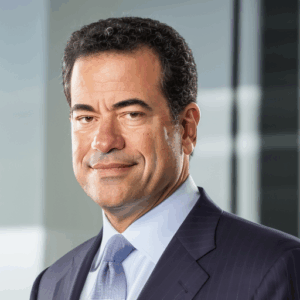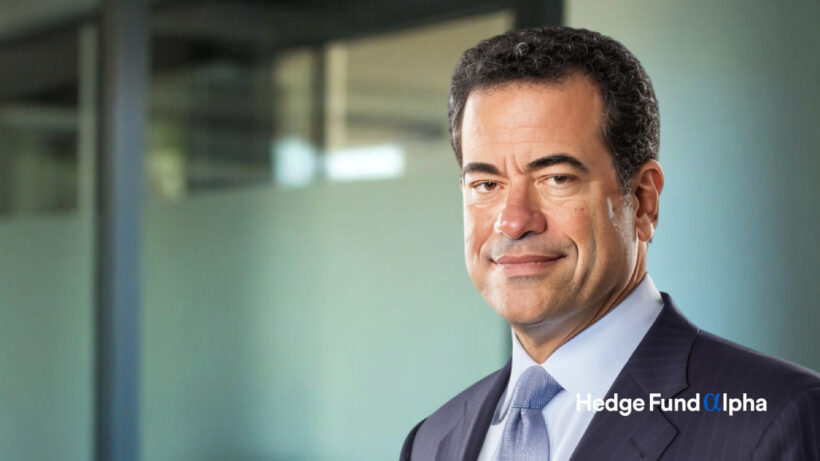In 2005, Danny Moses of The Big Short fame saw the writing on the wall for the subprime mortgage industry before it imploded. He was determined to make the move from the sell side to the buy side to take advantage of it.
In a recent interview with Hedge Fund Alpha, Moses took us behind the scenes of that fateful event and shared stories from his early life. He never imagined being a character in a Michael Lewis book and ended up in two of them.
Read hedge fund letters here
Danny Moses’ background

Moses trades for himself and no longer manages external money, instead using Moses Ventures for private investments and advisory work.
He’s the grandson of Holocaust survivors who settled in Greenville, S.C. His father was a finance professor, and they moved around a lot when he was growing up as his father took positions at various universities. Moses said moving around exposed him to a wide range of different people and settings, enabling him to quickly acclimate to various situations.
He added that having grandparents who survived the Holocaust put everything into perspective throughout his life. In fact, Moses’ grandfather, Max Heller, came to the United States with nothing, and after fulfilling his American dream, became the mayor of Greenville so that he could give back to the community that gave him so much.
Moses said he’s a great reader of people, which has been extremely helpful in business, and he was always good at math.
However, unlike many others in the finance industry, Moses didn’t originally want to go into finance. He wanted to be a sports broadcaster, even interning at CNN during his senior year at Emory University. Today, Moses hosts his podcast called On the Tape with Danny Moses to fulfill some of that desire.
Moses has been married for 29 years and has two sons, neither of whom he expects to end up on Wall Street. Describing himself as a “hedonist,” he does everything with passion, including both work and play. Moses also invented a side bet blackjack game called CrapJack.
“My mind is always working in odds and permutations and I enjoy taking calculated risks,” he added.
For the love of dogs
Moses has been following the stock market since he was a little kid because his father promised his sister and him a dog if Oxford Industries stock rose to $10 a share. Hoping to receive a dog, he started paying careful attention to the stock.
“Back then, you had to wait for the paper the next day and find the symbol on the business page in alphabetical order by exchange,” Moses said. “So New York Stock Exchange, Oxford Industries (OXM) mostly traded in quarters at that time. He told me if it got to $10, he would get us a dog. It got to $10, but he never got us a dog.”
Moses’ family was interested in Oxford Industries stock because the company purchased his grandfather’s shirt manufacturing company in Greenville.
“That’s how I fell in love with the markets,” Moses adds
The first stock he asked his parents to buy for him was Nike when he was a teenager in the early 1980s. He saw the Air Jordan shoes for the first time and asked his parents how he could own a piece of that. His father told him he had to buy stock in the company to get a piece of the shoes.
Moses doesn’t own Nike stock anymore.
Going into finance
He decided to go into finance after graduating Emory University in 1991 and went to New York and began working as an analyst for MBIA, which exposed him to the financial world. Danny’s first brush with leveraged finance and derivatives occurred in 1994, when MBIA provided insurance to Orange County, Calif., which found itself exposed to an interest rate derivatives trade gone bad and declared bankruptcy. While Danny did not work in that department for MBIA, he witnessed firsthand how leverage and derivatives can be a wicked combination. MBIA survived that but years later, it got caught up on the wrong side of the CDS trade and became a casualty during The Big Short era.
After leaving MBIA, Moses went back to Emory University for his MBA.
“I knew I wanted to get to the heart of Wall Street, and I had connections at Oppenheimer, so I went in for an interview and said I would work in any department,” he explained.
He got a job as institutional equity salesman in 1996, and his clients were pension funds, hedge funds and mutual funds.
“I was very passionate about trying to help my clients make money and felt that I was part of their investment process,” he added. “Every client had a different style and that helped sharpen my skills and gave me confidence to eventually make the transition to the buy side.”
Tutored by clients
At Oppenheimer, Moses fell deeper in love with Wall Street. He developed a better understanding of the research process, how that translated into price action, and how to identify opportunities on both the long and short side.
“I had very sharp clients, almost tutors in a way because I… always thought of myself as a consultant to money managers,” he said. “I would keep them up on their portfolios, bring research analysts and management teams in to see them, and recommend stocks. They all had different styles, which also exposed me to how you can have one stock, present the same information, and get five different opinions.
Moses knew in 1996 when he started at Oppenheimer that his goal was to end up on the other side of the phone at a hedge fund. He was fortunate that one of the analysts he worked with at Oppenheimer was Steve Eisman. The two stayed in touch, and Eisman was later a client before eventually giving Moses the opportunity to work for him at FrontPoint Partners in the spring of 2006.
Eisman covered specialty finance for Oppenheimer in the 90’s and hired Meredith Whitney and Vincent Daniel as research associates. Both Whitney and Daniel helped Eisman research the first subprime meltdown in the late 90s involving subprime auto and home equity loans. Daniel later followed Eisman to FrontPoint in 2004 and was also a featured character in The Big Short. Ironically, Whitney was the one who introduced Michael Lewis to Eisman in 2008.




